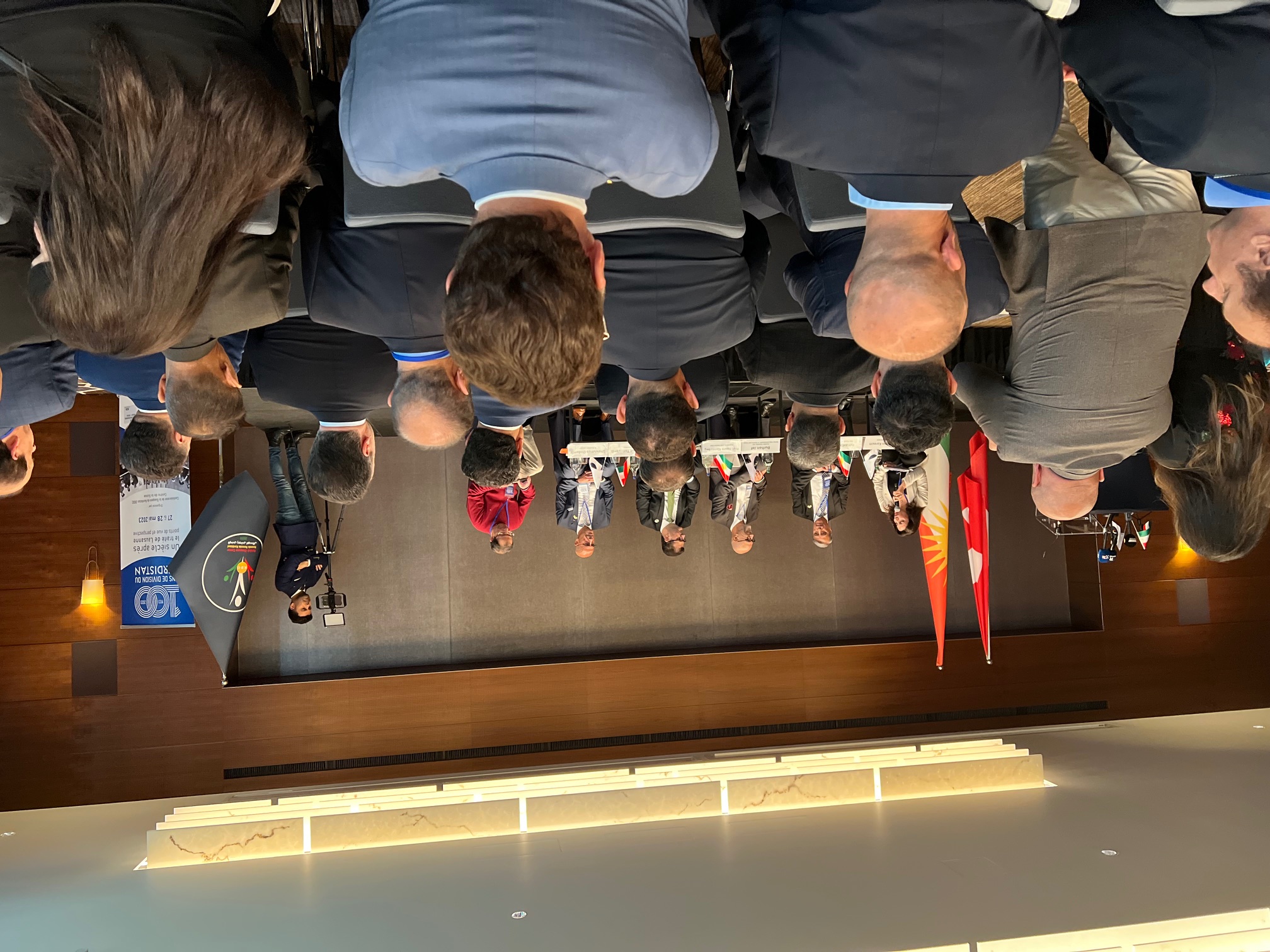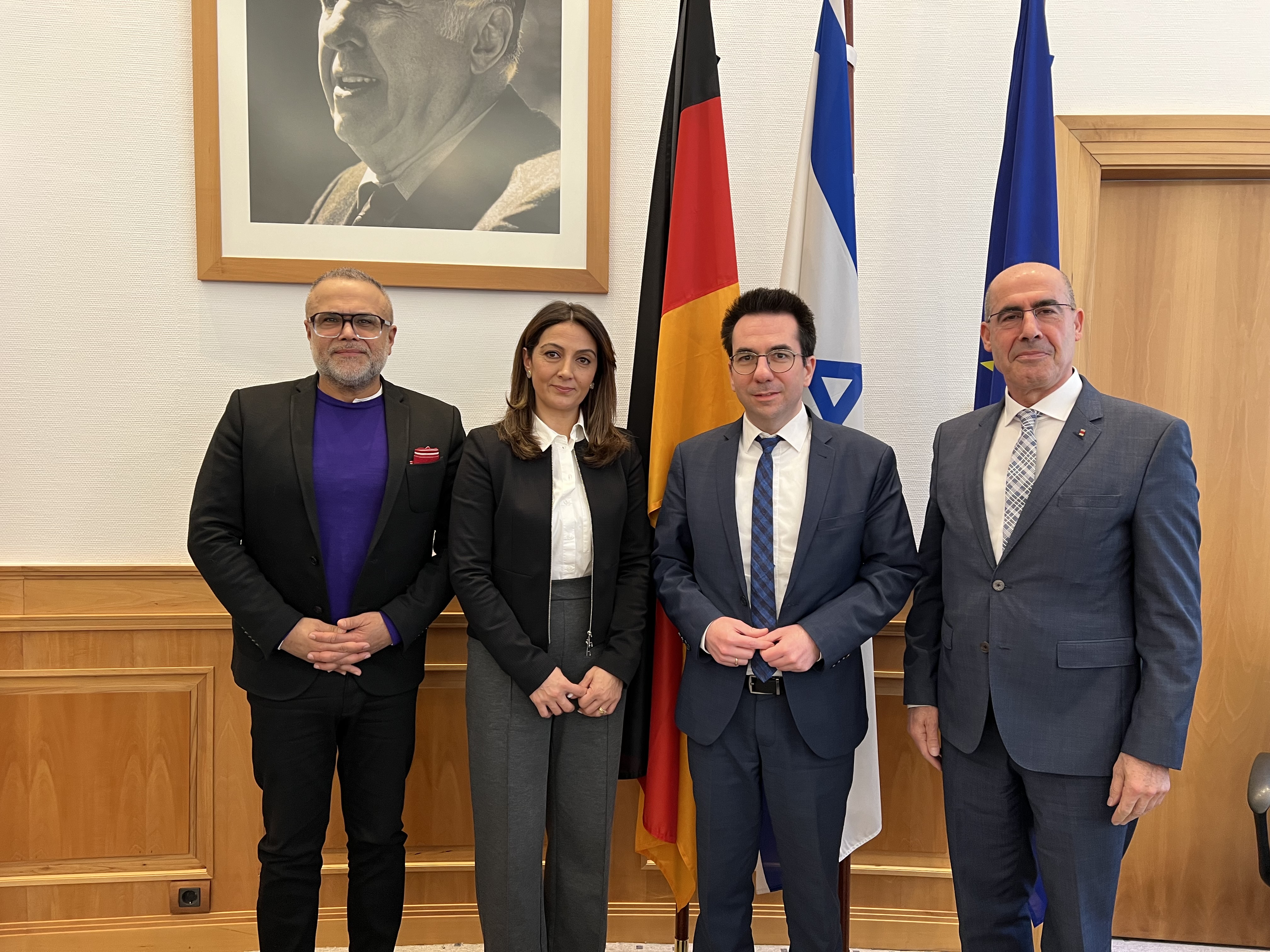Today’s world is shaped by continuous global migration and cultural integration and transformation. In this context, communities in Germany are grappling with a multitude of challenges. In particular, the Kurdish community faces hurdles in managing issues of identity, inclusion, and representation, which ultimately underlines the importance of organizations that aim at addressing these problems by fostering dialogue and promoting cultural understanding.
In this dynamic, organizations like the Kurdish Community Germany (KGD), as the sole Kurdish-German non-governmental organization (NGO) in the country, play a crucial role in building bridges between cultures, amplifying unheard voices, and advocating for the rights of marginalized communities. With a mission to represent the interests of two million Kurds nationwide, the KGD is more than just an organization – it is a vital force shaping cultural identity and societal participation. To understand the KGD’s role in the community, Kurdistan Chronicle sat down with founding chairman Mehmet Tanriverdi for an interview in which he shared insights into pursuing the KGD’s objectives, navigating its challenges, and celebrating its contributions to the landscape of German society.

Current challenges
In recent years, German politics have witnessed a notable shift marked by the increasing influence of right-wing political parties such as the AfD (Alternative for Germany). Not only Kurds but also other minorities feel threatened by such ideologies. According to Tanriverdi, Turkish right-wing extremism in groups like the Grey Wolves also poses a real danger to the Kurdish community in that they perpetuate discrimination and create an atmosphere of fear and insecurity. This both undermines the social fabric of German society and hampers the integration and well-being of minority groups, including Kurds. “It’s important to develop awareness of intra-migrant discriminations and threats in politics and civil society. Dealing with these challenges requires efforts at both the societal and institutional levels,” Tanriverdi explains.
Social and cultural activities
Organizations like the KGD also play an essential role in shaping the cultural landscape in Germany. In a society where many cultures mix and interact, the KGD, as an umbrella association, represents Kurdish culture in Germany by financially supporting member associations and organizing concerts, film festivals, or lectures. “We ourselves carry out projects, events, and much more to enable Kurds to actively participate in society and thereby contribute to strengthening the overall community,” Tanriverdi says.

Cooperation with other organizations
In managing the unique challenges faced by the Kurdish community in Germany, strong collaboration between organizations becomes essential. The KGD exemplifies this through its diverse array of partnerships and initiatives – both nationally and internationally.
At the national level, the KGD participates in various integration forums and initiatives, such as the Integration Summit (Integrationsgipfel) and the Integration Policy Dialogue. “The memberships of the KGD in the Network Against Racism (DGB) and in democracy centers, as well as our General Secretary’s inclusion in the expert advisory board of the Federal Foundation for the Reappraisal of the SED Dictatorship, reflect the diversity of the association’s scope of action,” Tanriverdi states. The KGD also works closely with universities, churches, and educational institutions, stressing the importance of interdisciplinary cooperation and collaboration in addressing societal challenges.
At the international level, the KGD is represented by board members in the European umbrella organization Diakurd and provides support to independent German NGOs active in Kurdish regions. A noteworthy example of this international engagement is the work and care provided by KGD advisory board member Jan Ilhan Kizilhan, who has been supporting and accompanying over one thousand Kurdish women, girls, and children during and after the atrocities committed by ISIS.

Projects and initiatives
The KGD also plays a significant role in promoting education and integration for Kurds in Germany. Through its diversity in language, origin, and religious affiliation, the KGD can conduct culturally sensitive, target-specific integration work for a variety of migrants in Germany. Particularly active in extracurricular educational activities, the KGD offers numerous programs aimed at strengthening democracy, promoting women, and preventing extremism. “Democracy consultants who were trained under the ‘We for Democracy’ project are now active in the associations,” Tanriverdi notes.
Meanwhile, the ‘Encounter Creates Acceptance’ project allows participants to gain insight into the workings of security authorities in Germany through personal encounters with police officers. The ‘Women in Action’ project aims to empower and support women through sports activities,” Tanriverdi adds.
Over the course of seven years, the KGD has also conducted multiple training sessions on various topics, including intercultural opening, anti-discrimination, and anti-racism, as well as combating anti-Semitism and Islamism. These trainings help raise awareness and create an inclusive environment that promotes the integration and participation of Kurds and other minorities in Germany.
The KGD is actively engaged in several projects aimed at fostering understanding and acceptance within German society. “For several years, we have been running the ‘Encounter Creates Acceptance’ project, which aims to break down prejudices between young people and police officers through encounter events. Particularly, individuals who have recently arrived in Germany from countries such as Iran, Syria, or Turkey often have had frequent encounters with repressive authorities. This project seeks to build trust in German authorities among these individuals,” Mehmet Tanriverdi tells Kurdistan Chronicle.
Organizations like the KGD are essential for fostering dialogue between Kurds and other communities, representing Kurdish interests and aspirations, and facilitating integration efforts. They are vital platforms for promoting understanding, advocating for the rights of Kurdish individuals, and bridging cultural divides within society. Additionally, they play a crucial role in providing support, resources, and opportunities for Kurds to actively participate in civic life and contribute to the broader community in Germany.
Mey Dost is currently pursuing a master’s degree in Digital Media Communication at RWTH University in Germany.

